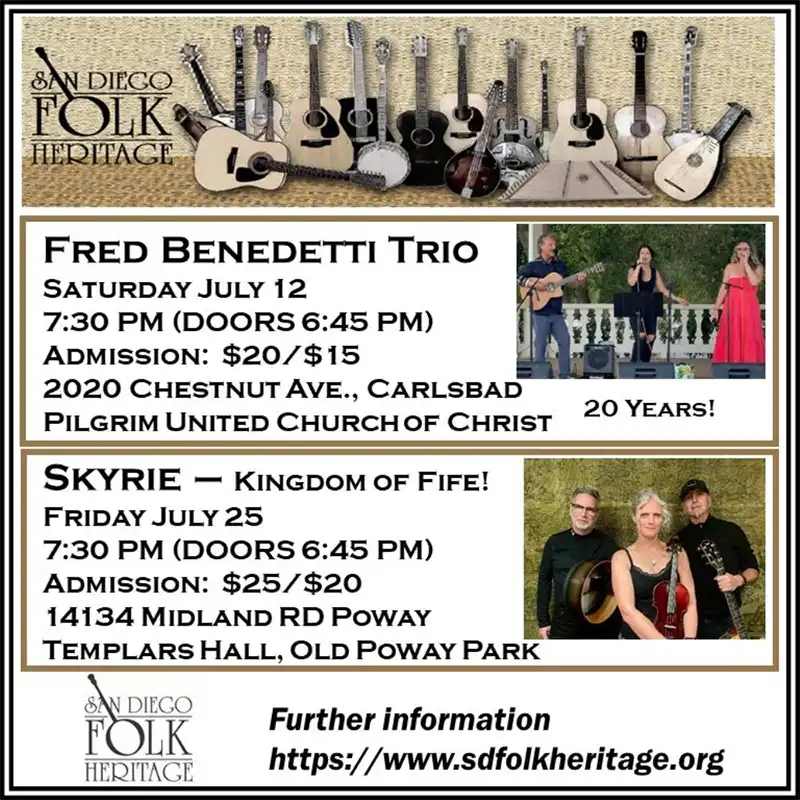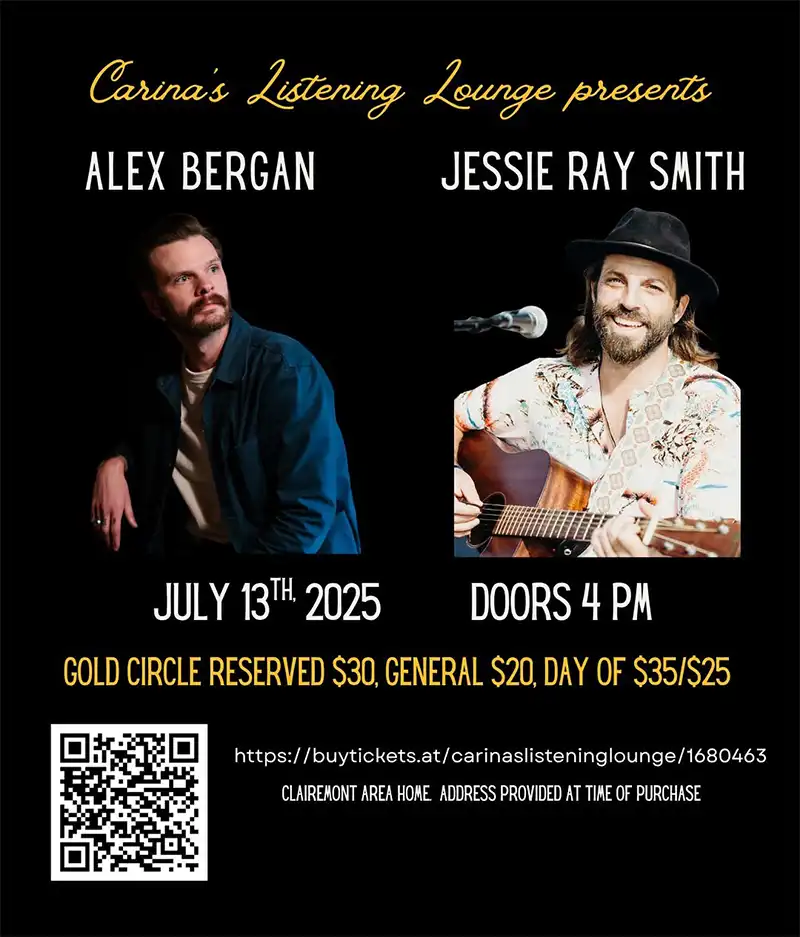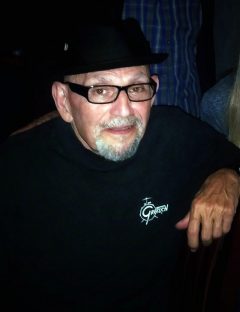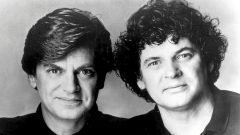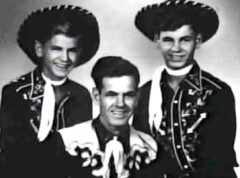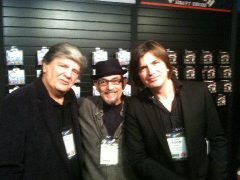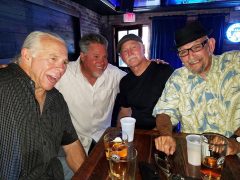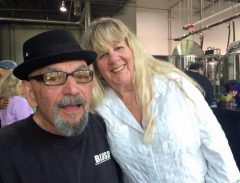Featured Stories
Drummer Al Schneider Has More than a Few Stories to Tell! Part 2
(To recap, from part one) Bigger things were looming on the horizon, although the route toward them was going to be circuitous. “I was playing a club called the Tomcat in Torrance in about 1968. Guys used to come in to make special appearances and the house band would back them up. There would be a name guy who had a record. There was this one guy who used to play bass for the Everly Brothers. His name was Joey Paige. He was real friendly with the Stones and all these guys. Joey had been booked to come into the club and do two shows and a couple of his friends came down to see him: Sam McCue who was the guitar player for the Everly Brothers at the time and the road manager whose name was Don Wayne. We backed up Joey and they came into the dressing room and said, ‘Look, man, we want to talk to you.’ They sat me down and they asked, ‘How would you like to play drums for the Everly Brothers?’ And I said, ‘Yeah, right.’ How would you like to go five rounds with Muhammad Ali or Joe Louis, or whatever?’ And they said, ‘No, seriously.’ They gave me a phone number, I gave them my phone number, and they said, ‘We’re gonna call you soon. The drummer that we have isn’t working out. We’re gonna get rid of him. Be ready to go.’ Yeah…I was on Cloud Nine!”
PART TWO
A full year elapsed after that conversation, and Schneider had joined another band with the promise of work in Reno. After rehearsing with them, he drove there with his drums and clothes packed in his big ’61 Cadillac (“it was big enough to sleep in!”), only to find out that they didn’t have the gig.
“I was promised a room, I was promised money to buy food…well, nothing turned out. I wound up living in my car. I didn’t have enough money to get home. They were still trying to get a gig just to get money to get out of town. I was stranded. I had all my clothes and my drums in this big Cadillac, and I found out that the hotels and motels would give you a little coupon worth 50 cents. You could go to any of the casinos in Reno and redeem this thing for 50 cents’ worth of nickels. But I found out they wouldn’t redeem your coupon unless you had a hotel key to prove you were staying someplace. So, as luck would have it, in the parking lot of one of these hotels someone had dropped a key. That’s when they used to have the diamond shaped plastic tags on the keys that had the name of the hotel on there. And you’d just go and show them this tag and you’d get your nickels. I would go to six different hotels in the morning and six different hotels at night, and I would get two or three bucks from each shift. I learned when the shift changed at these coin boxes where you would redeem them. Out of that I was able to eat because you could buy a hot dog in Reno at the time for 75 cents, and I saved enough out of that to put money in my gas tank.
“So… I’m trying to get this money to get home and I called to see how everything was. My wife at the time said, ‘There’s this guy who called. His name is John Wayne, or something like that.’ I said, ‘Was it DON Wayne?’ ‘Well, maybe he left a phone number.’ Okay, so I called the phone number and they said, ‘Would you still like that job?’ I said, ‘Well, of course!’ And they gave me the address of Phil Everly’s house who lived in Hollywood. I managed to save enough money to get home. I rode into LA on fumes in that big Cadillac, and overnight everything had just changed. A year after I talked to the guy, I got a job! They waited that long to replace their drummer. He was still the guy I was supposed to replace. They just hadn’t got rid of him yet. They said ‘We’re gonna rehearse for three days and then we go out on the road.’ I don’t even remember the first show. Everything was a blur at the time. It was so brand new. Learning the stuff was not a problem, because I grew up with that music in high school playing rock ‘n’ roll. I had a band in high school called Johnny and the Jumps and we used to play all that stuff. It wasn’t a big learning curve. It was very comfortable, because that’s what I grew up playing. I was with them for only three years, but in those three years I had learned so much about myself, about what was really going on.
“I had a great time with them. It was really an anomaly because they didn’t see eye-to-eye on a lot of stuff… at least at this point in their careers. Now keep in mind: they’ve been doing what they’re doing since they were six and eight years old. They never really had what I would call a normal childhood. Both of them were incredibly intelligent, very well-mannered, very hip to what was going on. They both went into the Marine Corps and Joey Paige went with them. At this point they were getting a little tired of each other, I think. It would be like a push-me pull-you thing on stage. Phil would come to us while we were playing a tune and he would say, ‘On the bridge go here,’ but he wouldn’t tell his brother what he had just told the band to do! If you’re a musician and you’re on stage and the rest of the band does one thing and you’re out twisting in the wind—not really to where people could really notice it—but just a subtle enough change to piss Don off. Phil just wanted to piss him off for something that happened yesterday. And it would work! Other than that, it was cool.
“There was one time we were on stage. I think it was in Canada. We played a thing for the opener. It was the beginning of their last hit, which was “Bowling Green.” We would keep playing that refrain and they would walk out. We’re playing it…and we’re playing it…and we’re playing it. People start to look around and then, all of a sudden, you can hear the audience over the music going [Schneider stomps his feet repeatedly to demonstrate]. Well, they lowered the curtain, and the dressing room door was just off the stage. As soon as the music stopped you could hear CRASH! BANG! We ran in there and the place was a mess. The brothers had obviously had a little altercation. Everything got cleaned up and they brought them back out. Everyone went nuts! They did the best show that I’ve ever played with those guys. After they got their aggressions out, they sang so sweetly, which they did every night anyway. To play behind those guys and hear that harmony night after night was just mesmerizing. They would do a tune called “Kentucky” with just the acoustic guitars. No band. And the rises and falls in their voices…the glissandos…the hair on my arm is standing up now. I don’t mean to go on about them getting into it. Brothers are gonna do that. Not all will do it two minutes before they walk onstage, but they did such a killer show. It was unbelievable. Nobody ever spoke of that incident again.
“They were just really, really nice guys. Humble. They might get in each others’ face and they might talk bad about each other every now and then, but not to the public. If you ever said a bad word about either brother to the other brother, they’d be in your face so fast. But they could do it, which you could understand, blood being thicker than water. But you couldn’t say a word against them. I had a great time with them when we played Vegas. Their dad, Ike Everly, came to join the show a couple times. He had a way of playing guitar that was called the Piedmont way of picking, where you pick with your thumb and your fingers. And the reason they did that was because when those old Appalachian families were playing guitar on the porch, they didn’t have a bass player, so they replicated the bass part with the thumb. From what I understand, he taught Chet Atkins and Merle Travis the Piedmont way to play. So, they were pretty hooked up on that end with the stars. And that’s what helped the Everlys get their break when they finally did. I think this was around ’56 or ’57. I got to meet a lot of people—Johnny Cash, Kris Kristofferson… I gotta tell you about the first words I ever heard from Johnny Cash. I used to have this big heavy rawhide coat with lots of fringe coming out. It’s not profound or anything, but the first words Johnny Cash said to me were, ‘Well Tiny, where did you get the shredded cow?’ The first and last time Johnny Cash ever talked to me and I heard him up close! He was bigger than life, man. We’d have some pretty good parties in Don’s room after the show. We’d get botanically enhanced. A little herbed up.
“Once, when I was with the Everlys, we were doing a studio session and I was having a hell of a time figuring out the drum part. I couldn’t get something that fit what they were doing. One of the guitar players on that session happened to be James Burton. You know, he started with Ricky Nelson then he went to Elvis. He was Elvis’ guitar player along with one of my favorite drummers, Ronnie Tutt, who was playing with Elvis for years. I was having a little trouble, so we were taking a break. I was in the separation room. And he [Tutt] came in there and he said, ‘You know I was thinking, why don’t you try this?’ and he showed me a pattern to play. And the next take was the take! It was good. He didn’t have to do that! I’ll never forget that. I mean, it helped my creds a little bit that I nailed it. And I felt really good that he came over and helped me. The other biggest thing with the Everlys was a live album (The Everly Brothers Show recorded at the Grand Hotel in Anaheim). We did a double album and it was recorded live where they had the trucks out in back. Now, this was a big deal because the producer was Lou Adler. You’d see him at Laker games sitting next to Jack Nicholson. Lou Adler was big. That was a real incredible experience because they took the compilation—we did two shows a night for two nights—and they took the best tunes. And that was an enormous amount of fun.
“One of the funniest things was when I was introduced on stage by Don Everly. I think it was a show in Melbourne. He’s introducing the guys in the band and he gets to me. ‘On drums is Tiny Schneider. Tiny and his bang-bangs!’ He said, ‘Our regular drummer is with us tonight. The substitute couldn’t make it!’ I remember when they broke up. This was two years after I had left them. I was there at Knott’s Berry Farm. It was pretty dramatic. They were scheduled to go on for three shows. They did the first show and I figured I’m gonna stay for all three shows. I talked to them a little bit. During the second show they’re singing and Don was just… you couldn’t understand what he was saying. He was slurring words. He was forgetting words. Phil was beside himself. Don just stood there and then Phil came over, took his acoustic guitar and smashed it on the stage. Then he said…on the mic, ‘I’m tired of being an Everly Brother. The Everly Brothers died ten years ago.’ And he walked out. The audience is sitting there. I’m sitting there. I knew this side of the brothers but never this publicly. Phil smashed his guitar. He was pissed. Don was just standing there, kind of wavering. And then the booking agent came and closed the curtains and took Don back into the dressing room. I understand a bunch of ex-Everly musicians went back—I didn’t go—and they helped him get through the third show. He had been drinking. He had his problems. He had chug-a-lugged some Jim Beam or Jack Daniels before the show. It hit him in the second show, and it just incapacitated him. After that they launched their solo careers and they had moderate success, but they needed each other so badly. They didn’t realize how much they loved each other. They didn’t know who they were after a while. They were the first of the inductees into the Rock ‘n’ Roll Hall of Fame. Then they had their reunion concert and I was hoping they’d call me but they didn’t. This was a big thing at the Royal Albert Hall. After ten years they got back together and it was monumental. I had tears in my eyes. I was able to reconnect with Phil almost a year to the day before he passed away. I went to the NAMM show. I heard he was gonna be there, so I pulled every string I had to get a ticket. I’ve never been able to reconnect with Don. He’s still alive and kicking. I love them both dearly. I’ve known people longer in the music business than I’ve known them.’”
It was during this time that Schneider’s career in the restaurant business was well underway, but the desire to pick up the drumsticks was never far from his heart. Soon afterward his decision to act upon it, he found employment on the Legendary Rhythm and Blues Cruises, running the jam sessions in the Crow’s Nest. “I was on 11 of them. I used to run some of the pro-am jams. Up in what they called the Crows’ Nest. The real pros were the ones who were hired to play the boat for seven days. There’s a lot of people that still want to play but don’t get to play on the big stage. So, they bring their instruments and they have a jam up in the Crow’s Nest, and I was fortunate to be one of the people to run the jam as a player and an emcee. Something life-changing always happened on one of those blues cruises.” Life changing, indeed. A chance encounter with an attendee whom he befriended led Schneider to make San Diego his home.
“Dr. Dennis Alters was a harmonica player. He said, ‘You’ll be able to find work in San Diego. I like the way you play.’ So, the first job I ever had out here was on a New Year’s Eve and it was with Billy Watson on harmonica, Nathan James on bass, Junior Watson on guitar, and I played drums. I’d never met these guys and they never met me, but Doc Alters got me the job. So that was the first time I played with any of the talent down here and I thought after hearing those guys, ‘You know what? If this is any evidence of the talent they’ve got down here, I’m staying!’ And, luckily, that was a wise choice. Being out of music like I was for over 20 years, I had no contacts left. Nobody knew how I could play, what I could play. So, I was kind of at loose ends. But at the time, when I was 62, putting myself out there all over again, going to jams… you gotta start all over. Luckily, I ran into Chet Cannon and he hired me. I played with some really good musicians. I learned a lot from Chet.”
Since his musical rebirth, Schneider has played with a host of stalwarts in the local music scene. “I gig when they call. I’ve played with Sue Palmer and I’ve played with Robin Henkel a whole bunch of times, played with Billy Watson quite a few times, Scotty Blinn an awful lot of times, Nathan James, the Fremonts, Chickenbone Slim, Michele Lundeen a number of times; Ric Lee calls me his big brother. He’s my little brother. Bill Magee a whole lot. I was in Bill’s band for a while.”
Schneider is currently hard at work performing and recording with Chris Fast’s band. “I love working with Chris’ band. We have a good time, plus we like each other, which also is a change from a lot of bands I’ve been in. Because playing with a lot of bands, I wouldn’t even sit down and have coffee with those guys. They were just all over the place. Chris Fast and Don Skelton and I are the nucleus of the band. Don’s the bass player. When you come and see the band you can see how much fun we’re having up on stage. And we hope that it transmits out. I think our brand of blues is really good. It’s really danceable. We try to stay as faithful to the forefathers as we can, but we try and put our own little touch on it. Chris does a helluva show and I want this to be the last band I’m ever in. I think that’s important. We’re continuing to record. We were up at Chris’ house all last week and found a nice way to record in his living room, where to put the mics. We did a lot of experimenting. We’re getting a good sound, so our third album is in the works.
“It’s a lot easier to play when you’re not scuffling for the rent. You can enjoy it a little bit more. I was enjoying it then and I appreciated it then, too. But now I can get a little deeper into it. And again, talk about the angel on the shoulder and the right choices, if I hadn’t taken that restaurant job for a little over 20 years I’d have never been able to qualify for social security and be able to retire. At the time I didn’t know that was what was going to happen. But had I not done that, I’d be one of the guys that would be asking for help on Facebook to do a benefit for me because I couldn’t afford to go to the doctor to get my flu shots. And I feel sorry for these guys. They have no insurance. They get out there and they play and they tear it up, but everything comes to an end. I’ve been very lucky to be able to do what I love, to keep doing what I love, and I’m now with the love of my life. We haven’t been together that long. Probably just over 10 years. I was married a couple of times, but I’m with the first girlfriend I ever had in high school. Jeannie is her name. Now, when I talk about high school and people there, she knows because she was there! She was in the drill team and I was in the band. She was a baton twirler. So, we were doing all the football games together. She was an operating room nurse for 35 years. Things work out. Nothing happens without a reason. You don’t know it at the time, but it’s the first time in my life at this late age. I thank God that I’m able to experience it, that I’m finally happy with someone.” Al Schneider has the look of a man who has savored every minute of life’s ups and downs. He has achieved a serenity that comes with the ability to accept whatever comes his way and turn it into a positive.
“It has been a great ride and it continues to be a great ride. If I had known I was gonna be playing this long I would have taken better care of myself… and I mean that as a joke! There’s a lot of smoke left in this old stack.”


